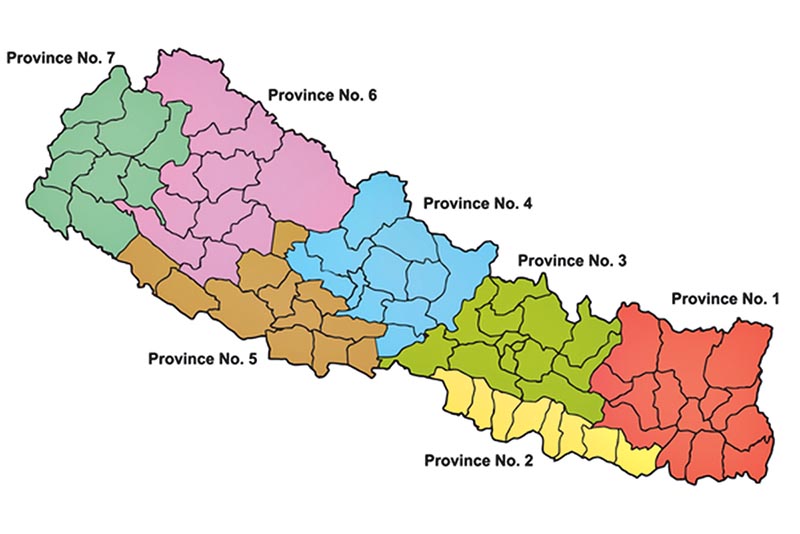NA gets report on implementation of federalism
Kathmandu, May 10
The National Concern and Coordination Committee of the National Assembly has submitted its report on ‘Coordination in Development of Level-wise State Structure’ to the Upper House Chairperson Ganesh Prasad Timilsina today, making an 11-point recommendation to the federal, provincial and local governments.
Recommendations include a range of issues, such as condition of coordination among federal, provincial and local levels, need for enactment of laws, collection and distribution of resources; implementation status of projects and equitable development.
A team led by the NCCC Chairperson Dil Kumari Rawal had visited all seven provinces and conducted interactions with people in presence of representatives from federal, provincial and local levels. The team had collected their opinions and suggestions in the course of preparing the report.
The report has recommended that the Office of the Prime Minister and the Council of Ministers and the concerned line ministries should expedite drafting of laws defining powers of three levels of the government and to ensure their passage through the ongoing session of the federal Parliament.
It has recommended that sound coordination be ensured among the provincial and local levels, federal police administration, federal civil service and the public service commission.
The NCCC has also recommended that the central government should conduct an organisation and management survey of all three levels of the government, as recent staff adjustment had allegedly failed to address the needs of provincial and local levels.
“For this purpose, the central government has to conduct an organisation and management survey, besides forming a Provincial Public Service Commission immediately, enabling it to appoint required human resources through Provincial Public Service Commission,” the report suggested.
The report also recommended that all the provincial governments should enact laws related to provincial police, natural resources, provincial universities and their exclusive powers as enshrined in the constitution.
It directed local levels to draft laws on health, education and mobilisation of local resources.
According to the report, Constituency Infrastructure Special Programme has been discriminatory while allocating budget and operating various projects.
“The government should treat all members of the House of Representatives equally when it comes to budget allocation and selection of projects,” it states.
The report also underscores the need for timely formulation and implementation of necessary laws, regulations and polices for an effective functioning of the federal setup and justifiable distribution of natural resources.
“Necessary arrangement should be made for scientific distribution of resources among the provincial and local levels on the basis of population, geography, their capacity and needs,” it suggested.
The NCCC directed the provincial and local levels to cooperate with the federal government for successful implementation of national pride projects.
“The NCCC suggests that the federal government should make an amendment to the Public Procurement Act and rules as they are not development-friendly in the changing context,” it adds.
The report states that many local levels have yet to establish all thematic offices and directed them to expedite the process to that end.






